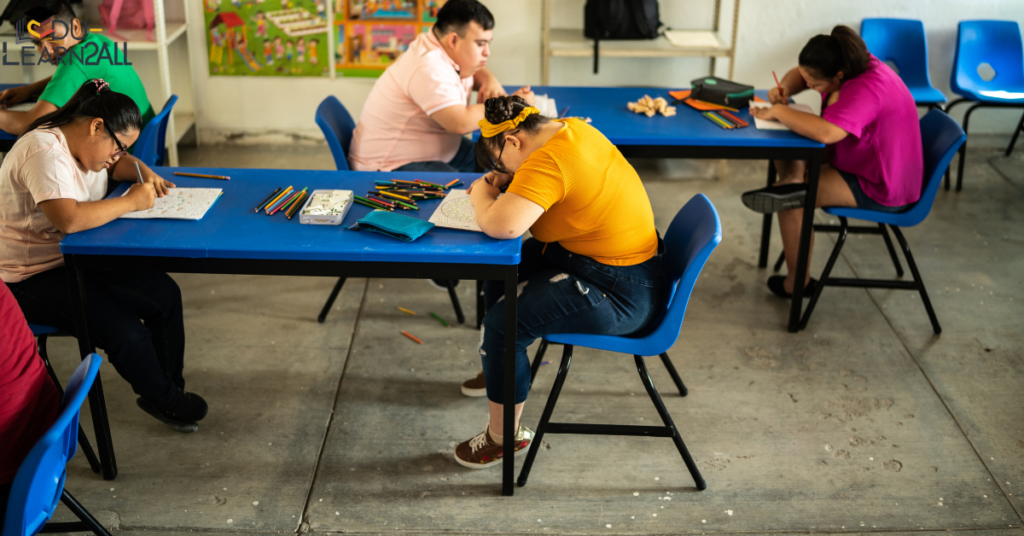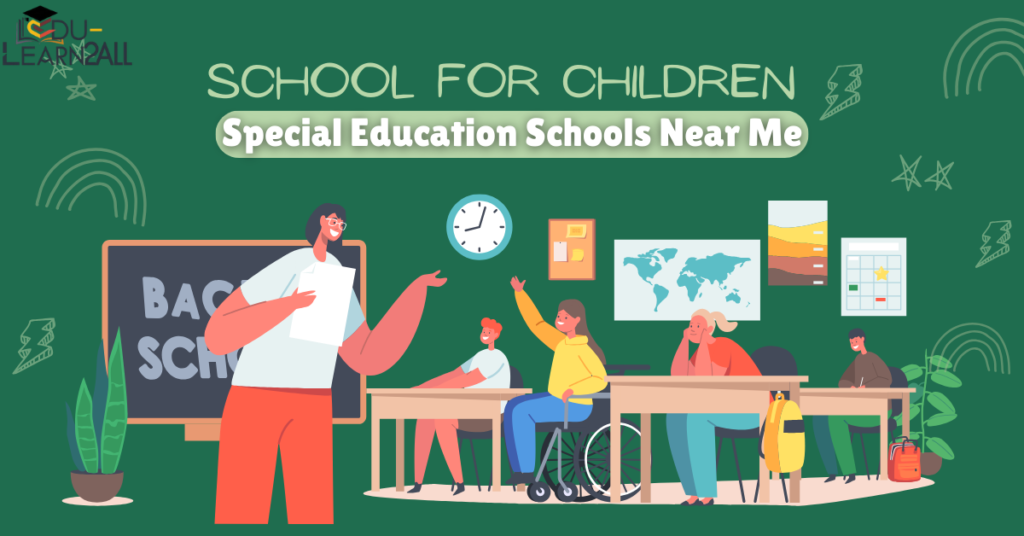Table of Contents
Introduction
Special Education Schools Near Finding the right educational environment for a child with special needs can be a challenging yet rewarding journey. As a parent, you want to ensure your child receives the support, resources, and opportunities they need to thrive. If you’re searching for “special education schools near me,” this guide will provide you with unique, well-researched information to help you make an informed decision.
What Are Special Education Schools Near?
Special education schools are institutions specifically designed to cater to the unique needs of students with disabilities or learning differences. These schools offer tailored curricula, individualized education plans (IEPs), and specialized teaching methods to help students achieve their full potential.
Unlike traditional schools, special education schools focus on creating an inclusive and supportive environment where students can develop academically, socially, and emotionally. They often employ trained professionals, such as speech therapists, occupational therapists, and behavioral specialists, to address the diverse needs of their students.
Why Choose a Special Education Schools Near?
- Individualized Attention: Special education schools typically have smaller class sizes, allowing teachers to provide personalized attention to each student.
- Specialized Resources: These schools are equipped with tools and technologies designed to support students with disabilities, such as sensory rooms, assistive communication devices, and adaptive learning materials.
- Trained Staff: Teachers and support staff in special education schools are trained to work with students who have a wide range of needs, ensuring that every child receives the care and guidance they require.
- Inclusive Environment: Special education schools foster a sense of belonging and acceptance, helping students build confidence and self-esteem.

Types of Special Education Schools
When searching for “special education schools near me,” it’s important to understand the different types of schools available. Here are some common options:
1. Public Special Education Schools
Public schools are required by law to provide free and appropriate education to all students, including those with disabilities. Many public school districts have dedicated special education programs or schools that cater specifically to students with special needs.
2. Private Special Education Schools Near
Private special education schools often offer more specialized programs and resources than public schools. These schools may focus on specific disabilities, such as autism, dyslexia, or hearing impairments, and provide tailored support to meet the unique needs of their students.
3. Charter Schools with Special Education Programs
Charter schools are publicly funded but operate independently of the traditional public school system. Some charter schools offer specialized programs for students with disabilities, combining the benefits of public education with innovative teaching methods.
4. Therapeutic Day Schools
Therapeutic day schools are designed for students who require both academic instruction and therapeutic support. These schools often provide on-site counseling, speech therapy, occupational therapy, and other services to address the emotional and behavioral needs of their students.
5. Residential Special Education Schools Near
Special Education Schools Near For students who require round-the-clock support, residential special education schools offer a comprehensive approach to education and care. These schools provide housing, meals, and medical care in addition to academic instruction.

How to Find Special Education Schools Near You
Finding the right special education school for your child requires careful research and consideration. Here are some steps to help you get started:
1. Consult Your Local School District
Your local school district can provide information about public special education programs and schools in your area. They can also guide you through the process of developing an IEP for your child.
2. Use Online Directories
Online directories, such as the National Association of Special Education Teachers (NASET) or the Council for Exceptional Children (CEC), can help you locate special education schools near you. These directories often include detailed information about each school’s programs, services, and admission requirements.
3. Seek Recommendations
Reach out to other parents, support groups, or advocacy organizations for recommendations. Hearing firsthand experiences can provide valuable insights into the quality and suitability of different schools.
4. Visit Schools in Person
Once you’ve identified a few potential schools, schedule visits to observe their facilities, meet with staff, and ask questions. This will give you a better sense of whether the school is a good fit for your child.

Key Factors to Consider When Choosing a Special Education Schools Near
When evaluating special education schools, consider the following factors to ensure you make the best decision for your child:
1. Accreditation and Licensing
Ensure the school is accredited by a recognized organization and licensed by the state. This guarantees that the school meets certain standards of quality and safety.
2. Curriculum and Teaching Methods
Look for a school that offers a curriculum tailored to your child’s needs and learning style. Ask about the teaching methods used and how they accommodate students with disabilities.
3. Staff Qualifications
Inquire about the qualifications and experience of the teachers and support staff. Ideally, the school should employ professionals with specialized training in special education.
4. Therapies and Support Services
Check whether the school offers on-site therapies, such as speech therapy, occupational therapy, or counseling. These services can play a crucial role in your child’s development.
5. Class Size and Student-to-Teacher Ratio
Smaller class sizes and lower student-to-teacher ratios allow for more individualized attention and support.
6. Parent Involvement
Find out how the school involves parents in the education process. Regular communication and opportunities for parent participation can enhance your child’s learning experience.
7. Cost and Financial Aid
If you’re considering a private special education school, ask about tuition fees and whether financial aid or scholarships are available.
Questions to Ask During Your School Visit
To gather more information and assess whether a school is the right fit, consider asking the following questions during your visit:
- What types of disabilities or learning differences does the school specialize in?
- How does the school develop and implement IEPs?
- What therapies and support services are available on-site?
- How does the school handle behavioral challenges?
- What is the student-to-teacher ratio?
- How does the school measure student progress?
- What extracurricular activities or enrichment programs are offered?
- How does the school communicate with parents?
- Are there opportunities for parent involvement?
- What is the school’s approach to inclusion and socialization?

The Benefits of Early Intervention
Early intervention is critical for children with special needs. Research shows that the earlier a child receives support, the better their long-term outcomes. Special education schools that focus on early intervention can help children develop essential skills, build confidence, and overcome challenges before they become more significant.
If your child is young, look for schools that offer early childhood special education programs. These programs are designed to address developmental delays and provide a strong foundation for future learning.
Transitioning to Adulthood
For older students, it’s important to consider how the school prepares them for adulthood. Look for schools that offer vocational training, life skills programs, and transition planning to help students achieve independence and success after graduation.
Conclusion
Finding the right special education school for your child is a deeply personal and important decision. By understanding the different types of schools available, knowing what to look for, and asking the right questions, you can make an informed choice that sets your child up for success.
Remember, every child is unique, and the best school for one child may not be the best for another. Take your time, do your research, and trust your instincts. With the right support and resources, your child can thrive and reach their full potential.

